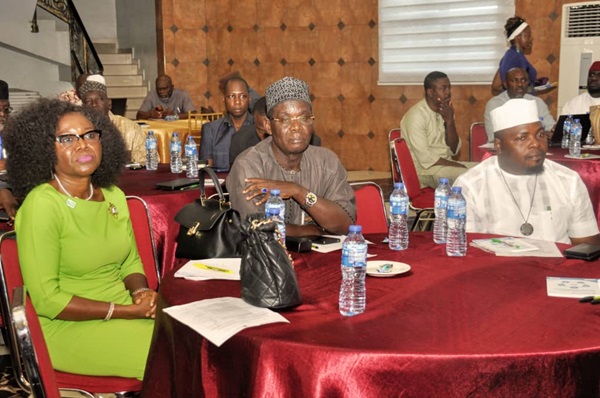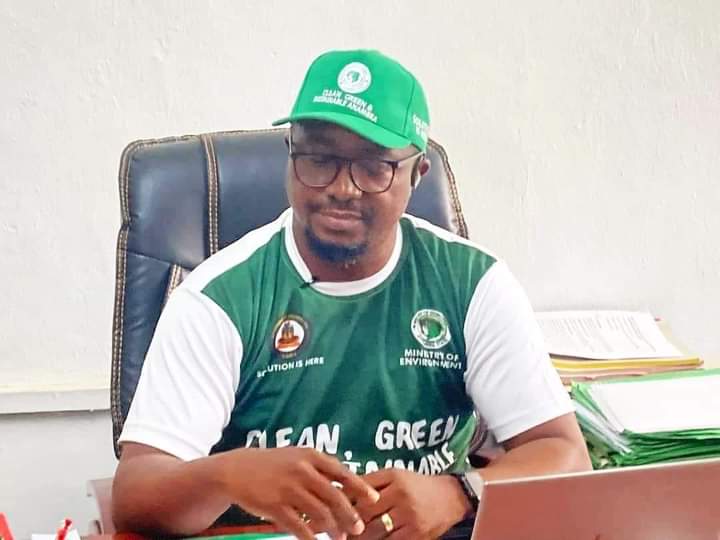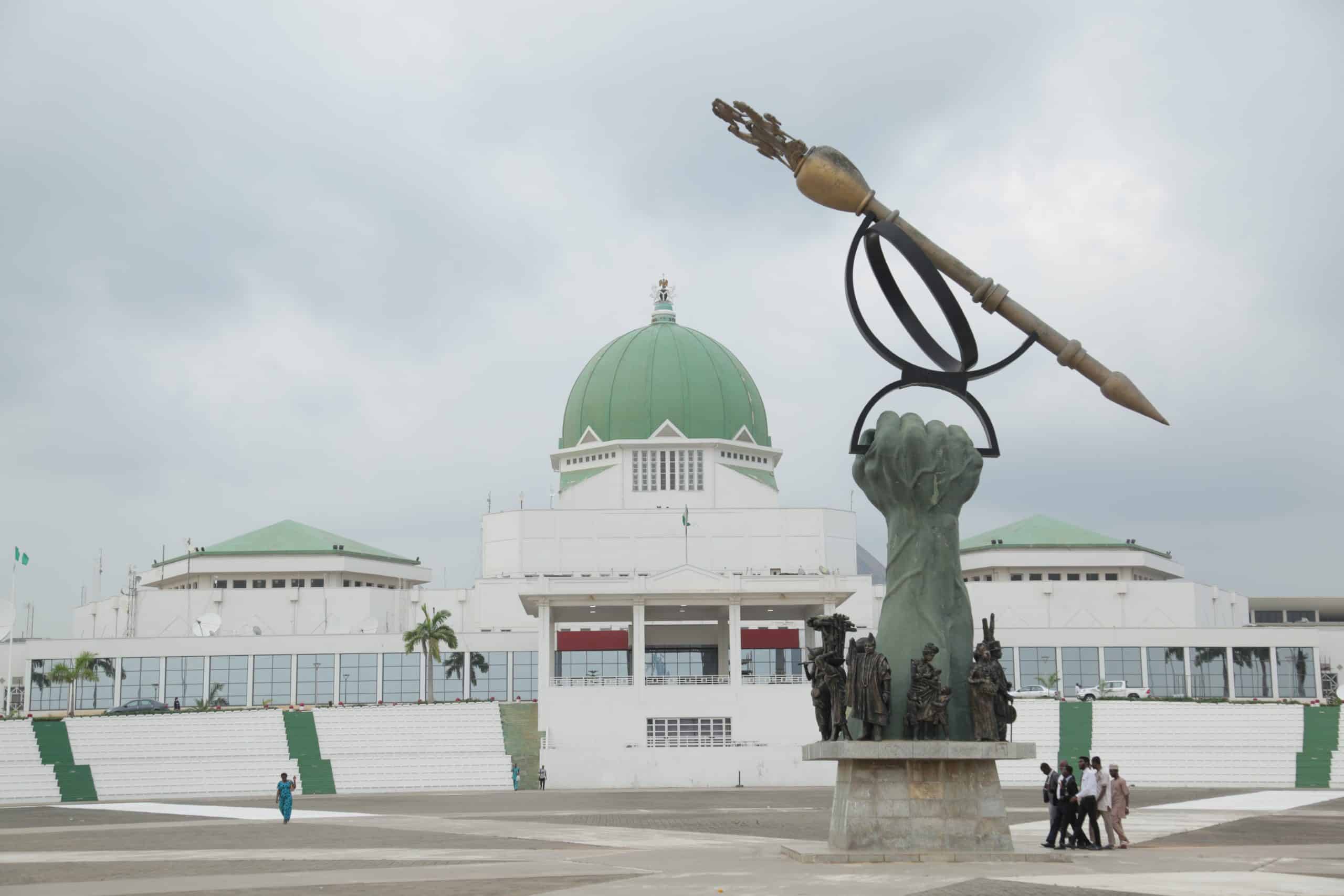Place your adverts here on InfoDig @ low rates; banner ads, sponsored links and guest articles etc. Contact us
 Sen. Ajayi Boroffice.
Sen. Ajayi Boroffice.The Nigerian Institution of Space Engineers recently held its 8th annual lecture and awards ceremony in honor of Brigadier General Michael Agu (Rtd), a prominent figure in Nigeria’s space history. At this event, former President Olusegun Obasanjo spoke about the pivotal role of Nigeria’s space programme in the country’s development and its potential to drive sustainable growth across Africa. He reflected on his administration’s investments in space technology as a powerful engine for economic growth, innovation and job creation. However, he expressed concern that the focus on space science has dwindled in subsequent administrations, though he remains hopeful about the future under the current director-general of the National Space Research and Development Agency (NASRDA), Dr. Matthew Adepoju.
Obasanjo raised a thought-provoking question during his speech: “What has been done to recognize the pioneering Know-How-Technology-Transfer (KHTT) team involved in Nigeria’s first satellite design, testing and launch?” His inquiry underscores an important issue: the need for Nigeria to honour exceptional achievers who contribute to national development. How can their achievements be preserved and made a source of inspiration for future generations?
To address these concerns, the Nigerian Institution of Space Engineers honored several distinguished Nigerians at the event, including former president Obasanjo, former Science and Technology Minister, Prof. Turner Isoun and the founding director-general of NASRDA, Senator (Prof.) Robert Boroffice. Boroffice received a lifetime achievement award for his instrumental role in pioneering Nigeria’s space program and advancing the nation’s technological infrastructure. His visionary leadership has been key to shaping Nigeria’s space science landscape and fostering a culture of innovation across multiple sectors.
Boroffice’s journey with NASRDA began in 1999, when he established a strategic framework for leveraging space technology to address national challenges, promote socioeconomic growth and position Nigeria as a leader in the Fourth Industrial Revolution (4IR). Under his leadership, NASRDA launched Nigeria’s first satellite, NigeriaSat-1, in 2003, a milestone that marked Nigeria’s entry onto the global space map. This satellite allowed Nigeria to harness the benefits of space technology in agriculture, environmental monitoring, disaster management, telemedicine and security. He also supervised the development of NigerComSat-1, NigeriaSat-2, and NigeriaSat-X, further expanding Nigeria’s technological capabilities.
A key priority of Boroffice’s leadership was building local expertise in space science. As NASRDA’s director-general, he initiated various programs aimed at training young scientists and engineers, helping NASRDA become a premier hub of expertise in Africa. Today, NASRDA is home to over 190 doctorate researchers in satellite-related fields and more than 2,000 professionals with master’s degrees, creating a robust pool of talent that has set the agency apart in Africa’s scientific community. With adequate funding and support, this knowledge base could contribute significantly to Nigeria’s economic growth, potentially replicating the success of the ‘Asian Tigers’.
Boroffice’s tenure also demonstrated a commitment to international cooperation in space research. He used his expertise and diplomatic acumen to forge partnerships with key global organisations, including the United Nations Committee on the Peaceful Uses of Outer Space (COPUOS), the International Telecommunication Union (ITU) and the Disaster Monitoring Constellation (DMC). Through his leadership, Nigeria has cultivated meaningful collaborations with global space agencies such as Surrey Satellite Technology Limited (SSTL), Telesat Canada, China Great Wall Industry Corporation (CGWIC) and the European Space Agency.
These alliances enabled knowledge exchange and technology transfer, advancing Nigeria’s capabilities in areas like remote sensing and Earth observation. Boroffice’s approach emphasised the role of science in building global peace and collaboration, positioning space as a domain of shared opportunity rather than a source of geopolitical tension. His diplomatic efforts have demonstrated that space exploration can foster unity among nations, advancing a vision of global citizenship.
A pioneer in Nigerian science policy, Boroffice was instrumental in establishing several critical institutions before becoming NASRDA’s Director General. In the mid-1990s, as the coordinating director for science in the National Agency for Science and Engineering Infrastructure (NASENI), Boroffice played a significant role in founding the National Information Technology Development Agency (NITDA), the National Biotechnology Research and Development Agency (NBRDA) and NASRDA itself. His foresight recognised the importance of information technology and biotechnology for Nigeria’s economic and social progress. NITDA now drives Nigeria’s digital transformation, while NBRDA is contributing to agricultural and healthcare advancements through biotechnology.
Boroffice’s leadership style blends visionary thinking with a hands-on approach to institution building. He has consistently championed innovative service delivery in the public sector, advocating for reforms that connect the interests of service providers with the needs of the served. His work at NASRDA exemplifies how a well-managed, mission-driven public institution can have transformative effects on national development. The Nigerian Institution of Space Engineers hopes that his pioneering contributions will inspire current and future leaders to embrace innovation and excellence in public service.
The ceremony honouring Senator Boroffice is a reminder of the powerful impact that individuals can have on a nation’s development. His contributions to Nigeria’s space programme reflect a dedication to using science and technology for the public good. Today, Nigeria’s space programme holds promise as a catalyst for socioeconomic growth, environmental management and security. As the global space economy continues to expand, Boroffice’s efforts have laid the groundwork for Nigeria to participate meaningfully in this promising sector.
Looking forward, NASRDA and its partners have an opportunity to build on Boroffice’s legacy by further developing Nigeria’s capabilities in space science and technology. Investments in human resources, infrastructure and international partnerships will be essential to sustaining progress and achieving self-sufficiency. Senator Boroffice’s achievements demonstrate that visionary leadership and a commitment to public service can turn ambitious dreams into lasting realities.
As Nigeria strives to address complex challenges in health, agriculture and environmental management, the lessons from Boroffice’s tenure at NASRDA underscore the need for a comprehensive approach to science and technology policy. By fostering a culture of innovation and embracing collaborative partnerships, Nigeria can leverage its space programme to improve the quality of life for its citizens and contribute to global scientific advancement.
Boroffice embodies the qualities of a statesman, a scholar and a pioneer. His enduring legacy in Nigeria’s space programme is a testament to the potential of public institutions to drive meaningful change. Through his work, he has shown that a well-conceived vision, supported by dedicated public servants, can unlock opportunities for generations to come. The Nigerian Institution of Space Engineers’ decision to honour Boroffice’s contributions is both timely and well-deserved, acknowledging a leader who has played a crucial role in shaping Nigeria’s future.
Omozuwa, PhD wrote from Zamfara.














